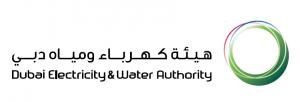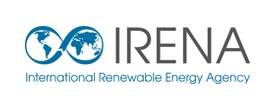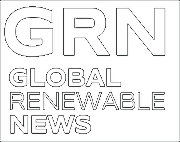Global warming is worsening and urgently requires the attention of the international community. Climate change is rapidly becoming the largest challenge facing the world today, and poses dangerous threats for our future. According to a report from the World Bank, titled Turn down the heat,' the Middle East stand at the forefront of climate change. Rivers are drying out, coastal areas are sinking, and over the last 150 years, industrial development has released a large amount of greenhouse gases into the atmosphere. Greenhouse gases are a significant cause of climate change, leading to increasing the planet's average temperature. Although greenhouse gas emissions in Arab countries does not exceed 5% of the world's emissions, it is still one of the largest contributors to climate change.
Environmental experts believe that the effects of climate change are already impacting the Arab region. There have been torrential rains and floods in Egypt, Lebanon, Iraq, Mauritania, Saudi Arabia and Kuwait, including a cyclone that hit the southern coasts of Oman and Yemen. Desertification and drought are also the results of climate change. The Arab region has witnessed a significant rise in temperatures in recent decades. Temperatures are expected to rise by as much as eight degrees Celsius in parts of Algeria, Saudi Arabia, and Iraq by the end of the century.
Three main challenges that face the UAE to mitigate the increasing effects of climate change include: population growth, urban and industrial development, and limited natural resources. The rapid increase in the country's population has led to a rise in the demand for industrial growth. This has led to excessive greenhouse gas emission, especially carbon dioxide. We are aware that the pressing issue of climate change is not only an environmental challenge, but also an issue for ensuring development, with enormous social and economic challenges that directly impact the rate of sustainable development.
The UAE has taken great strides towards addressing climate change and mitigating its impact on the environment and economic sectors. The UAE works according to a strategic framework, to preserve the environment, and strives to develop the role of the youth in its work to reduce the effects of climate change. The UAE's wise leadership launched the Ministry of Climate Change and Environment, to highlight the importance of environmental preservation, reflecting the priority the UAE gives to protecting the environment. The UAE is one of the first countries in the world to support the international community's efforts to tackle climate change. The UAE was one of the first countries to support the Kyoto Protocol in 2005, to curb greenhouse gas emissions in industrialised countries, in addition to being the first country in the region to sign the Copenhagen Agreement, during the 15th session of the Conference of the Parties, to support the long-term agreement towards reducing emissions.
The UAE has played an important role in the negotiations that led to an agreement to combat climate change, at the International Conference of the Parties in 2015 (COP21), in Paris. For the first time in over 20 years of UN negotiations, 186 out 195 countries pledged their commitment to reduce emissions and combat climate change, to keep the increase of planet's temperature less than 2 degrees.
UAE is committed to achieving the objectives of the 2030 Agenda for Sustainable Development, launched by the United Nations, to eradicate poverty, inequality, and the effects of climate.
Dubai seeks to support efforts in renewable energy, sustainability and environment. The Dubai Supreme Council of Energy launched the Carbon Abatement Strategy 2021, to reduce carbon emissions by 16% by 2021. This will transform Dubai into the city with the lowest carbon footprint in the world by 2021. HH Sheikh Mohammed bin Rashid Al Maktoum, Vice President and Prime Minister of the UAE and Ruler of Dubai, launched the Dubai Clean Energy Strategy 2050, to transform Dubai into an international hub for clean energy and green economy, by providing 7% of Dubai's total power output from clean resources by 2020, 25% by 2030, and 75% by 2050. This will enable Dubai to reduce its carbon footprint, and limit the effects of global warming.
To contribute to global efforts in this regard, Dubai hosted the World Green Economy Summit over the last three years, to promote Dubai as an international hub for green economy, while providing a platform to gather experts in the field of green economy, to strengthen partnerships between the public and private sectors, while developing green initiatives aimed at ensuring a sustainable future.
DEWA works to enhance sustainability in the Emirate, by launching clean and renewable energy projects, and increasing the efficiency of water end energy networks, in addition to launching initiatives, to raise awareness and instil a culture of rationalisation among community members. This supports objectives to lower Dubai and the UAE's carbon footprint and mitigate the impact of global warming. DEWA continuously participates in conferences, events and national forums that highlight environmental action and the most innovative solutions in the field of green development.
Solar energy is the most common source of clean energy in the UAE, as the country is conveniently located within the solar belt. In Dubai, about 2,150 kilowatts per square meter (kW/m2) of solar radiation, which can be used in PV technology, is recorded annually. The amount of direct radiation which can be used for Concentrated Solar Power (CSP) technology is recorded at 1850 (kW/m2) annually. These results greatly contribute to the implementation of solar energy technology in Dubai.
DEWA launched the Shams Dubai' initiative to support the Green Economy for Sustainable Development' initiative, launched by HH Sheikh Mohammed bin Rashid Al Maktoum, in adherence with the UAE Vision 2021 to transform Dubai into the smartest city in the world. Shams Dubai focuses on achieving a sustainable environment, in adherence with the Dubai Strategy 2021, to transform Dubai into a city with clean, healthy, and sustainable environmental elements. Shams Dubai encourages customers to install PV panels on their rooftops to generate electricity from solar power. The electricity is used on-site and the surplus is exported to DEWA's network. An offset between exported and imported electricity units is conducted and the customer account is settled based on this offset.
DEWA has launched a number of promising projects and initiatives to support Shams Dubai, including the Jebel Ali M Station, which is a first of its kind in the region, with a total production capacity of 1.5MW.
Last October, DEWA launched its project to install PV solar panels on the rooftops of buildings in the region, by installing 88,000 PV solar panels on the rooftops of buildings in the Jebel Ali Free Zone, Port Rashid. DEWA cooperated with 18 government organisations in Dubai to launch 37 projects to support Shams Dubai, with a total combined production capacity of 445MW of electricity annually. We have witnessed increasing demand for installing solar panels on the rooftops of buildings as part of the Shams Dubai initiative. The Mohammed bin Rashid Al Maktoum Solar Park will contribute to the reduction of over 6.5 million tonnes of carbon emissions annually, and is considered one of the largest single site solar energy projects in the world based on the Independent Power Producer (IPP) model, with a total planned production capacity of 5000 megawatts by 2030, and an investment of AED 50 billion.
We are proud of the accomplishments in this field, and have been able to achieve great success in solar energy technology. DEWA received a globally-competitive price of USD 2.99 cents per kilowatt hour (kW/h) for the park's third phase, which is based on the IPP model, will use PV technology and will be operational by 2020. The solar park is the first of its kind in the region, and is significant due to its production capacity. It is the first of many promising projects to ensure greater reliance on renewable energy sources to generate electricity in Dubai.
In adherence with the directives of HH Sheikh Mohammed bin Rashid Al Maktoum, we recently launched the largest solar energy project in the world based on the IPP model, with a planned production capacity of 1000 MW by 2030. The park includes an innovation centre that features a number of R&D centres to find solutions and develop new clean energy technologies. R&D centres include CSP testing facility, a water and environment research facility, and an Unmanned Aerial Vehicle (UAV) research facility. The centre will also focus its R&D efforts on 3D printing technology, and water desalination using solar energy. The innovation centre has allocated a budget of AED 500 million towards integrated, smart and energy efficient water and electricity networks, waste reduction, solar energy, to preserve natural resources, and the environment.
DEWA also launched a specialised programme that will enable DEWA to establish a higher education institute, which offers master degree programmes in the fields of clean energy sustainability and technology. This will increase the efficiency of DEWA employees, in the fields of sustainability, environmental preservation, renewable energy technology, clean energy, and green economy. According to the IPP model, DEWA chose a bidder with the lowest price of USD 4.5 cents per kW, to develop the first phase of the Hassyan Clean Coal Power Plant. The plant will produce 2,400 MW, and will become operational in 2023. It will make use of Ultra Super Critical technologies, which is one of the best international techniques. Through the Hassyan Clean Coal Power Plant, DEWA aims to achieve the fifth pillar of the Dubai Clean Energy Strategy 2050. This will help Dubai transform into an international hub for clean energy and green economy.
DEWA joined Global Reporting Initiative (GRI) GOLD Community' in January 2017. Gold Community members are organizations which are at the heart of the community shaping the future of sustainability and reporting, and empowering decision making towards a more sustainable economy and world. This is aligned with the UAE's leadership wise vision to shape the future and support sustainable development in UAE and the region.
DEWA has also been invited by the GRI to be part of the Standards Pioneers Program. GRI launched the distinguished programme for those organisations which have demonstrated leadership in Sustainability Reporting. DEWA being at the forefront of reporting is participating in the Standards Pioneers Program, available only to 100 organizations worldwide who are going to adopt the new standards.
The wise leadership understands the importance of adopting sustainability and launching green initiatives, to streamline the transition into a green economy. HH Sheikh Mohammed bin Rashid Al Maktoum launched the World Green Economy Organisation (WGEO) in October 2016, with the support of Dubai Government, and in cooperation with the United Nations Development Programme (UNDP).
DEWA launched Etihad Energy Services Company (Etihad ESCO), to provide promising investment opportunities to companies specialising in energy efficiency, in addition to financial institutions, and green technology and equipment suppliers. DEWA is working to retrofit over 30,000 buildings to ensure energy efficiency. In adherence with the Demand Side Management strategy, the project will reduce energy consumption by 30% by 2030. The project has an allocated budget of AED 30 billion, is valued at AED 82 billion, and will achieve savings of up to AED 52 billion, while benefitting the economy. DEWA takes priority in furthering sustainable development in the UAE. We are cooperating with Emirates Central Cooling Systems Corporation (EMPOWER), the world's largest district cooling system provider in the world, to highlight the benefits of district cooling for public and private sectors on an international level. There is an urgent need to unify efforts, to address the challenges facing the energy sector, while increasing the job market in the clean and renewable energy sectors.
Dubai Carbon Centre of Excellence works to develop a green economy, by developing new operational standards to reduce carbon emissions in daily activities, while strengthening the partnership between the public and private sectors. To strengthen international efforts towards tackling the effects of climate change, the United Nation Framework on Convention on Climate Change (UNFCCC) announced the launch of the UAE Solar Power Programme, in cooperation with the Dubai Carbon Centre for Excellence (Dubai Carbon), to enhance the Clean Development Mechanism (CDM) in all ongoing solar projects. The UAE Solar Power Programme is a leading initiative supporting global efforts towards achieving a green economy and sustainable development. Dubai Carbon collaborated with DEWA in launching the State of Green Economy Report 2016. The report presents a comprehensive look at the initiatives that encourage innovation and the policies that accelerate the shift towards green transformation. It also highlights the UAE's efforts to become a role model in the shift towards a green economy.
DEWA has received a number of environmental certifications and awards, including the ISO 14001:2004, and the Five Star Environmental Audit from the British Council in 2011. These awards are a result of DEWA's efforts to comply with international laws and regulations, while adopting appropriate management systems and best practices to preserve the environment. DEWA's efforts also resulted in it winning the Sword of Honour in the environment category, from the British Safety Council, for the fifth time in a row since 2012. DEWA was selected to win the award out of seven international institutions, and became the first government entity in the region to receive this prestigious award.
Our efforts and achievements shall not cease, as we continue following in the footsteps of our wise leadership. Our participation in COP22 reflects our commitment to strengthening the UAE's cooperation with the international community to tackle climate change, and fulfil the historic agreement reached during COP21. We are confident that by unifying efforts with the international community, we will be able to find solutions to climate change, and ensure future generations the right to live in a clean, healthy and sustainable environment.









